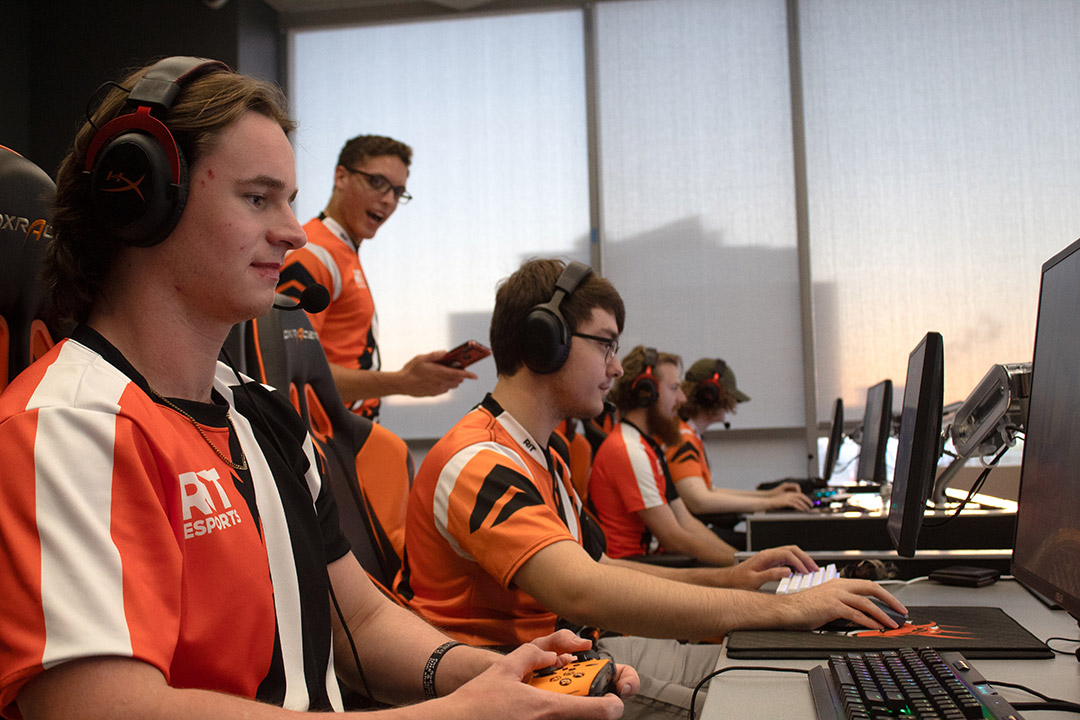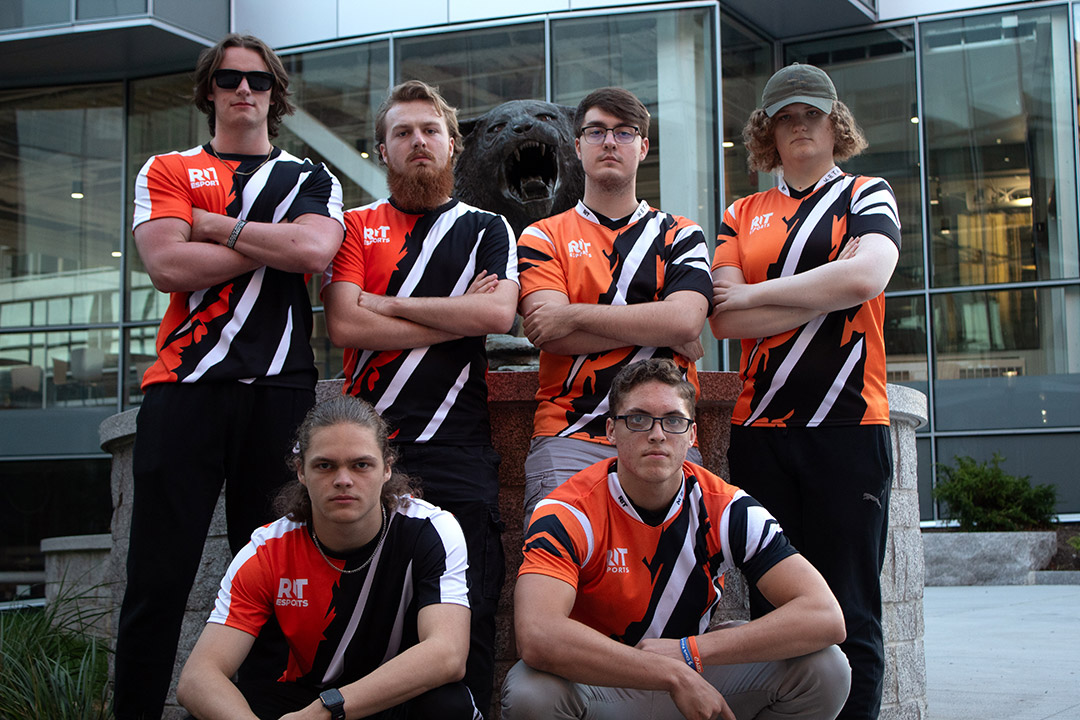RIT Esports unites students with a competitive spirit and a passion for gaming
Teams compete at a national level in a variety of games
RIT Esports
The RIT Esports ‘Halo’ team practices for competition.
RIT’s Esports Counter-Strike 2 team won the Varsity Premier division of the National Association of Collegiate Esports last semester, and its Hearthstone team has had players enter the top eight, two semesters in a row. These are just a few of the achievements of the team, which strives to earn many more accolades as the spring esports season gets underway.
The team, which brings together nearly 300 students in each of RIT’s nine colleges, competes in 19 games across various genres. Some of the games they compete in are Overwatch, Rocket League, and even Chess. Students compete in different levels, including JV and varsity, and play against other colleges and universities around the nation, hoping for a chance to compete in, and ultimately win, nationals to become the best collegiate esports team in the country.
Dan Squire, RIT Esports competitive director and a fifth-year game design and development major from Medina, N.Y., shared what draws him to this community.
RIT Esports
The RIT Esports ‘Halo’ team is preparing for its spring gaming season.
I've always had a very deep love for competition and gaming,” he explained. “I knew when I got to RIT that I wanted to continue to pursue that passion in some way, so I tried out for the Hearthstone team and the Magic: The Gathering Arena team in my first semester. Since then, I’ve been growing my skills and helping others develop their own, and I am deeply grateful for the experience I’ve had thus far.”
Esports practices are conducted similarly to physical sports practices. Both require countless hours of time commitment to hone one’s skills, and practice time is spent reviewing footage from past games, studying opponents’ strategies, scrimmaging other teams, or perfecting strategies through repeated attempts.
Dylan Pegg, a third-year game design and development major, is student manager of the Halo team and competes at the highest level.
“It is such an exhilarating feeling,” Pegg said. “The people are playing out of passion and out of love for the game. In the college scene, there’s a community outside of the individual teams. A lot of people are friends from different schools.”
One of the benefits of esports, according to fifth-year computer science major Gerrit Krot, is the level of accessibility afforded to players due to the absence of requiring very specialized equipment or training fields.
“Everyone that has access to a computer and the internet can compete. The beauty of esports is that the barrier to entry is really low, so we see all kinds of people playing and competing,” Krot said.
Viewers can watch RIT Esports team practices and competitions on its Twitch livestreams.











